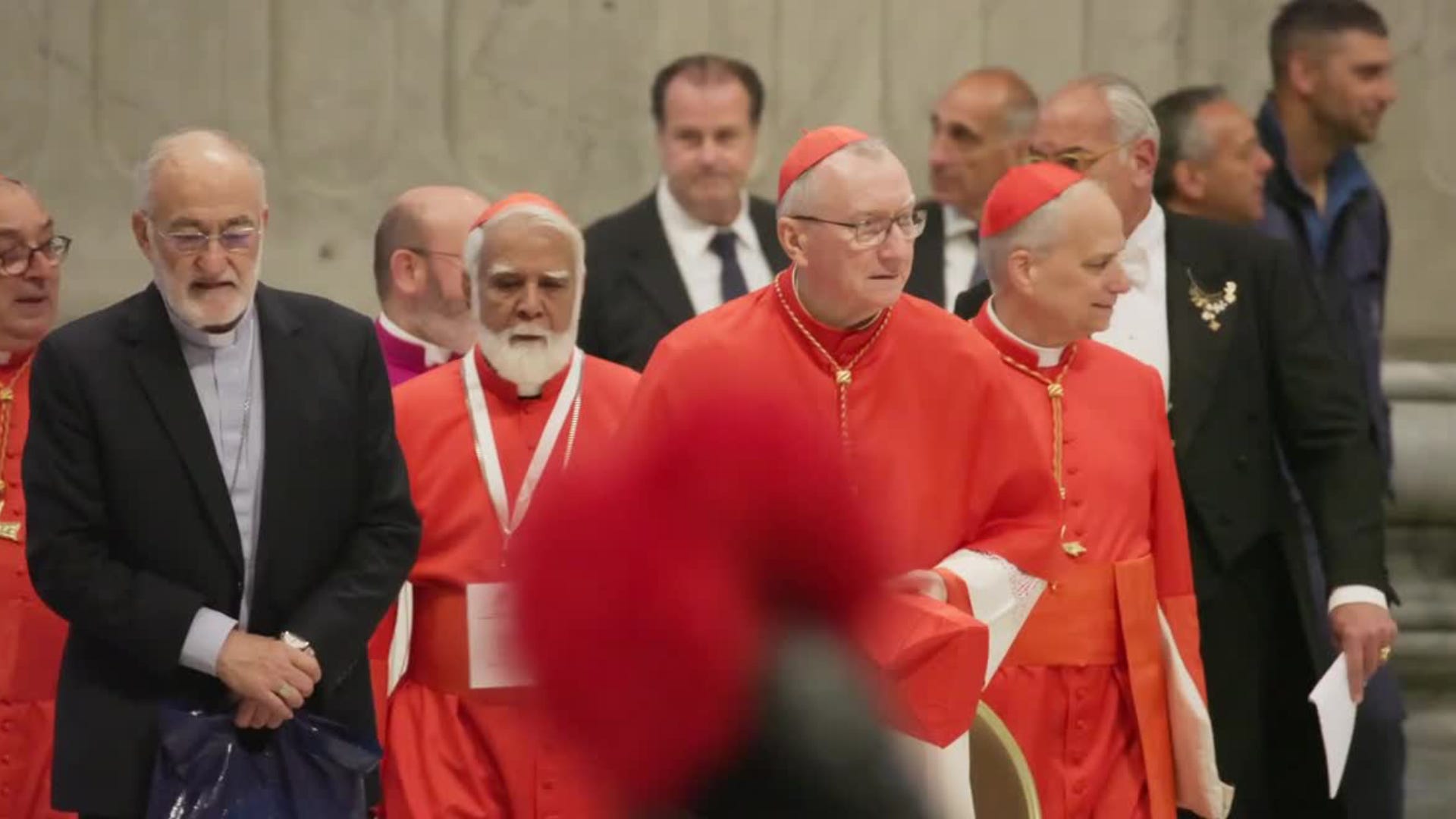Pope Leo XIV celebrates first Mass with cardinals

Editor's Note: For the latest updates on Pope Leo XIV's first full day as pontiff, visit Paste BN's coverage for Friday, May 9.
Pope Leo XIV marked his first full day as leader of the 1.4-billion-member Roman Catholic Church by celebrating Mass in the Vatican's Sistine Chapel on Friday with cardinals.
Mass got underway as Pope Leo XIV processed into the Sistine Chapel and sang in Latin along with the Vatican’s Sistine Chapel Choir, one of the oldest and most prestigious in the world. The first two readings were delivered in English and Spanish.
Leo opened his homily with a few words in English addressing the cardinals and delivered the rest in Italian. Leo speaks English, Spanish, French, Italian and Portuguese, and can read Latin and German, according to the National Catholic Reporter.
"You have called me to carry the cross and to be blessed with that mission," he said in English. “And I know I can rely on each and every one of you to walk with me."
Leo also invoked Pope Francis, saying in Italian that his predecessor often taught that Catholics "are called to bear witness to our joyful faith in Christ the Saviour," the Vatican News reported. Leo said this "missionary outreach is desperately needed" in the many places where "the Christian faith is considered absurd, meant for the weak and unintelligent. Settings where other securities are preferred, like technology, money, success, power, or pleasure."
After the Mass, Leo will have lunch with the cardinals who elected him and they will then be free to leave the Vatican and return to their homes around the world.
Also on the pope's schedule, Leo plans to lead the Regina Coeli prayer from the central balcony of St. Peter’s Basilica at 12 p.m. local time on Sunday, May 11, according to Vatican News. On Monday, May 12, he will meet with journalists in the Vatican.
History made with new Pope Leo XIV
The first Mass comes less than a day after 133 cardinal electors selected Leo, formerly Cardinal Robert Francis Prevost, as the 267th pope of the Catholic Church in a historic first. The 69-year-old Chicago native is the first pontiff born in the United States.
Throughout his career, Leo was primarily a missionary in Peru before receiving dual Peruvian nationality and serving as a bishop in Chiclayo from 2015 to 2023. He became a cardinal only in 2023.
Following a two-day papal conclave, Leo was elected as the successor to Pope Francis — who was the first pope from Latin America and died on April 21 at the age of 88. The selection surprised the Roman Catholic world as Leo was not viewed a frontrunner for the papacy.
After white smoke emerged from a chimney atop the Sistine Chapel on May 8, there was a brief moment of uncertainty when the new pope's name was announced to a huge crowd in St. Peter's Square before people erupted in cheers.
"Peace be with you all," he told the crowd in fluent Italian. Leo also spoke in Spanish but not English in his address.
How a Chicago native became pope: See Robert Francis Prevost's path to making history

Prevost was ordained in 1981 as a member of the Order of Saint Augustine. He then became a pastor of vocations and director of missions for the Augustinian order in Chicago and worked in Peru for several years teaching canon law.
Prevost also served as a parish pastor, diocesan official, seminary teacher and vicar. He served two terms as the head of the Augustinian order, until 2013.
In 2014, Francis appointed him to an administrative posts in Peru, and became bishop here, as well vice president of the Peruvian Bishops Conference until 2023.
His most recent position, prefect of the Dicastery for Bishops, was a powerful one: He was responsible for selecting many of the world's bishops. He was elevated by Francis to the rank of Cardinal in September 2023.
Prevost succeeds a groundbreaking, pioneering pope whose progressive positions, emphasis on inclusivity and ability to connect with people all over the world, from all backgrounds and across different faiths, made him a beloved religious figure, even in secular realms.
Prevost has attracted interest from his peers because of his quiet style and support for Francis, especially his commitment to social justice issues.
The name Leo
Prevost chose a name used by 13 others before him.
“Leo is a powerful choice," said Margaret Thompson, an associate professor of history at Syracuse University. "Leo XIII is considered the father of Catholic social teaching. This signals a potential emphasis on justice, labor, and the church’s role in the modern world.”
The last pope to take the name Leo led the Church from 1878 to 1903. Leo XIII was known for his devoted focus to social justice issues, and is often credited with laying the foundation for modern Catholic social teaching.
Bruce Morrill, a distinguished professor of theology and Roman Catholic studies at Vanderbilt University, called Prevost's name choice "highly significant" and likely a signal of his support for social justice.
Contributing: Reuters